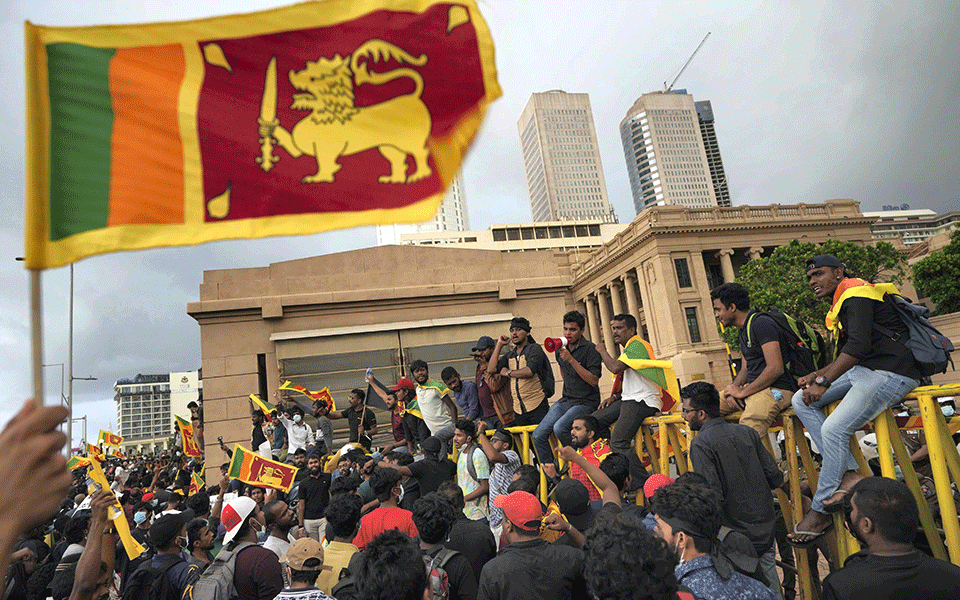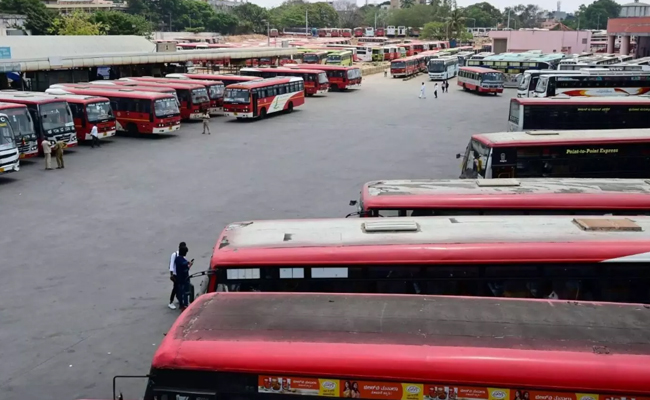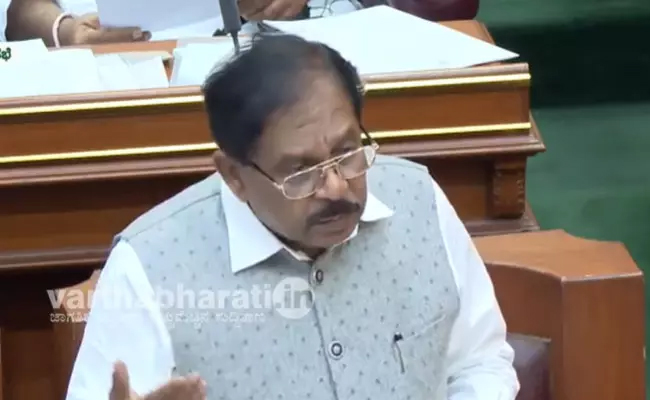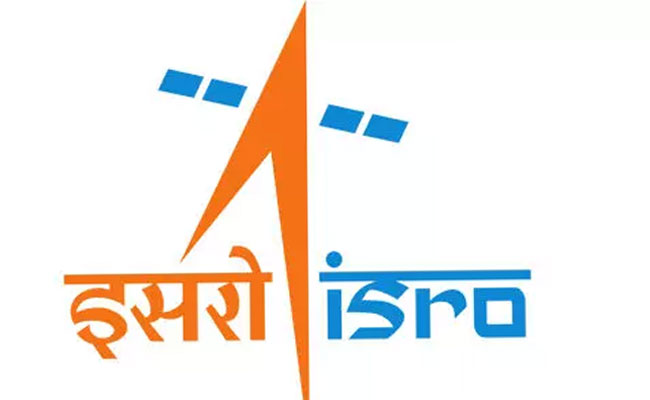Colombo(PTI): A massive anti-government street protest demanding Sri Lankan President Gotabaya Rajapaksa's resignation has turned into an all-night vigil as over 10,000 demonstrators gathered at the Galle Face Green urban park amidst the unprecedented economic crisis in the island nation.
Sri Lanka is facing its worst economic crisis since gaining independence from the UK in 1948.
People have been protesting for weeks over lengthy power cuts and shortage of gas, food and other basic goods.
Since mid-day Saturday, the protesters from all walks of life marched into Galle Face where Rajapaksa's secretariat is located.
By evening, the main Galle Road was completely blocked with protesters bringing the traffic to a standstill.
We are still here , a participant at the site had a social media posting by 6 AM on Sunday. They claimed that mobile phone signals had been jammed in the area.
Eyewitnesses said that a section of the protesters had remained for the all-night vigil. They were chanting Go home Gota', urging the President to resign.
This is not a joke, we are here because we have no electricity, gas, fuel and medicine, a protester told reporters.
They must go, they have no solutions, another said, adding that they have no political leaning.
The massive protest was meant to draw a million people to demand the Rajapaksa family's resignation.
The mass scale street protests began after a gathering opposite Rajapaksa's private home was tear gassed on March 31 when several people were arrested and later granted bail.
Since then, the protesters have surrounded the homes of parliamentarians at different places.
The government has accused the Opposition parties, mainly the Janatha Vikmuthi Peramuna (the People's Liberation Front), for organising the demonstrations.
The call for the President's resignation is unconstitutional and the Opposition parties were accused of driving the island into anarchy.
Party sources said that talks on methods to end the current political and economic impasse would be held on Sunday.
The 10-party alliance of the ruling Sri Lanka Podujana Peramuna (SLPP) coalition is due to meet President Rajapaksa to discuss the formation of the all-party interim government.
The main Opposition Samagi Jana Balawegaya (SJB) said that they are to meet to take forward the process of moving a no-confidence motion against the government.
The SJP has started taking signatures of MPs for the no-confidence motion.
President Rajapaksa and his elder brother, Prime Minister Mahinda Rajapaksa, continue to hold power in Sri Lanka, despite their politically powerful family being the focus of public ire.
The President has defended his government's actions, saying the foreign exchange crisis was not his making and the economic downturn was largely pandemic driven with the island nation's tourism revenue and inward remittances waning.
Sri Lanka is scheduled to start talks with the International Monetary Fund (IMF) on April 11. The talks would lead to a possible bailout, including assistance on restructuring foreign debt.
Let the Truth be known. If you read VB and like VB, please be a VB Supporter and Help us deliver the Truth to one and all.
Bengaluru: The Karnataka State Road Transport Corporation will operate 1000 additional special services in view of the Christmas festival.
In addition to the existing schedule, the special services will run on 19.12.2025, 20.12.2025 and 24.12.2025. Further, special buses will be operated from various places of intra & Interstate places to Bengaluru on 26.12.2025 & 28.12.2025.
Special buses will be exclusively operated from Bengaluru Kempegowda Bus Station to Dharmastala, Kukkesubramanya, Shivamogga, Hassan, Mangaluru, Kundapura, Shringeri, Horanadu, Davangere, Hubbali, Dharwad, Belagavi, Vijayapura, Gokarna, Sirsi, Karwar, Raichur, Kalaburagi, Ballari, Koppala, Yadgir, Bidar, Tirupathi, Vijayawada, Hyderabad and other places.
ALSO READ: Bengaluru: Shopkeeper stabbed for refusing to serve free panipuri
Special buses from Mysuru Road Bus Station will be exclusively operated towards Mysuru, Hunsur, Piriyapatna, Virajpet, Kushalanagar, Madikeri.
The corporation has also announced a discount of 5 per cent on the fare if four or more passengers book tickets under a single reservation. A discount of 10 per cent will be extended on return journey tickets if onward and return tickets are booked simultaneously.
In addition to the above, special buses will be operated from all Taluk/District Bus Stands in the jurisdiction of KSRTC based on the traffic needs.





